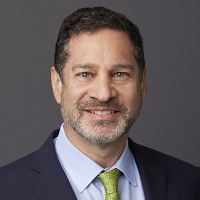Don’t Want to Leave Money to Your Kids? You’ll Probably Change Your Mind.
How much is too much to leave your children? You may be surprised.

Profit and prosper with the best of Kiplinger's advice on investing, taxes, retirement, personal finance and much more. Delivered daily. Enter your email in the box and click Sign Me Up.
You are now subscribed
Your newsletter sign-up was successful
Want to add more newsletters?

Delivered daily
Kiplinger Today
Profit and prosper with the best of Kiplinger's advice on investing, taxes, retirement, personal finance and much more delivered daily. Smart money moves start here.

Sent five days a week
Kiplinger A Step Ahead
Get practical help to make better financial decisions in your everyday life, from spending to savings on top deals.

Delivered daily
Kiplinger Closing Bell
Get today's biggest financial and investing headlines delivered to your inbox every day the U.S. stock market is open.

Sent twice a week
Kiplinger Adviser Intel
Financial pros across the country share best practices and fresh tactics to preserve and grow your wealth.

Delivered weekly
Kiplinger Tax Tips
Trim your federal and state tax bills with practical tax-planning and tax-cutting strategies.

Sent twice a week
Kiplinger Retirement Tips
Your twice-a-week guide to planning and enjoying a financially secure and richly rewarding retirement

Sent bimonthly.
Kiplinger Adviser Angle
Insights for advisers, wealth managers and other financial professionals.

Sent twice a week
Kiplinger Investing Weekly
Your twice-a-week roundup of promising stocks, funds, companies and industries you should consider, ones you should avoid, and why.

Sent weekly for six weeks
Kiplinger Invest for Retirement
Your step-by-step six-part series on how to invest for retirement, from devising a successful strategy to exactly which investments to choose.
Some parents fear leaving their children too much money. They talk about their friend’s child, who ended up doing little with their lives and abusing drugs and alcohol. Or they have an image of “trust fund babies” who sleep all day and party all night.
The good news is that the vast majority of children with inherited wealth do lead productive lives and would not fall into any of the above descriptions. Their parents set expectations, provided guidance and encouragement, and set limits when the children were growing up. No surprise their children turned out just fine.
Parents also fear leaving their children a significant part of their wealth because it could ruin their drive to live a productive life, fearing they simply might not feel the need to work. Or that the children will feel that any financial success they achieve will not be meaningful compared to their inheritance. So, they choose to leave a relatively small inheritance, enough to help but not eliminate the need to work. But parents often greatly underestimate the amount their children may need simply as a safety net, let alone to enhance their lives. Further, parents may not be aware there are certain controls they can put on the money they leave to their children that can assuage fears about misuse.
From just $107.88 $24.99 for Kiplinger Personal Finance
Become a smarter, better informed investor. Subscribe from just $107.88 $24.99, plus get up to 4 Special Issues

Sign up for Kiplinger’s Free Newsletters
Profit and prosper with the best of expert advice on investing, taxes, retirement, personal finance and more - straight to your e-mail.
Profit and prosper with the best of expert advice - straight to your e-mail.
As parents grow older, learn about these controls, and start to realize economic conditions are different, many end up changing their minds about how much money they want to leave their grown children. Coming to this conclusion earlier rather than later can have its benefits.
Here’s how to re-think leaving money to your children.
Determine your goals
If a parent's concern is that they will harm their child by leaving them too much money, they need to determine what dollar amount will cause that harm. The answer depends on what they want their children to achieve with the money. Then consider the what-ifs. For example, assume a parent wants to leave their child $500,000.
- What if the adult child has a health crisis or they have a baby with a disability, incurring significant costs to the adult child and/or preventing them from being able to work?
- What if the market sinks and the $500,000 becomes $250,000?
- What if despite working hard, they or their employer are put out of business by a competitor, regulations or shifts in consumer taste?
While $500,000 may seem like a lot, if you take into consideration all the possibilities, it can be dissipated quickly on non-frivolous expenses. On the other end of the spectrum, some parents ask where the limit is. When is the line crossed from “enough” to “too much”? They want to help their kids, but they don’t want to give them beyond what they could possibly need.
These goals may change as the child ages and grandchildren are born. Once their adult child starts working, parents may want to help with rent so they can have a nicer place to live or groceries so they eat a healthier diet. When grandchildren enter the picture, the parents may want to help their adult children buy a big enough house in a safe neighborhood with good schools. Grandparents may want to help pay for the grandkids’ higher education (or even private school for K-12) or want to ensure they will be able to afford good health care.
Parents’ goals and perspectives change over time, and financial plans change along with them.
Learn about controls and family conflict
Parents can put controls on the wealth they leave their adult children by using trusts. Parents can choose a trustee to manage the trust so the kids don’t have full access or control. The trust can help them get an education, buy a place to live and start a business, but they can’t just live off the trust and sit around doing nothing. These controls can be different for each child. If parents know one child won’t lose their drive no matter how much money they have but another child will spend it all in a week, the children can be given different, access, controls and rights over their trusts.
These differences could cause conflict in the family, so parents need to keep an open line of communication with their children to explain their concerns and why they set the trusts up the way they did.
Teach your children about money
It’s up to parents to teach their children how fortunate they are to inherit anything, and that responsibility comes along with having money. Used properly, wealth can provide a safety net for unforeseen circumstances (which always arise) and provide a better lifestyle than a child might otherwise attain with his or her own income. Used wisely, having wealth can impact the children’s own communities if used to create jobs by starting or growing a business. Parents can teach their children that while they have a comfortable lifestyle, they can also use their money to benefit the world around them.
Parents may fear that leaving their children money will end up doing more harm than good, but if parents teach their children from a young age how to properly use their wealth and set expectations, it’s less likely the children will use it irresponsibly. And if parents are still fearful their kids won’t use their money properly, they can place controls on what they give. But parents’ goals will inevitably change as they get older and situations change, so leave room for flexibility.
Profit and prosper with the best of Kiplinger's advice on investing, taxes, retirement, personal finance and much more. Delivered daily. Enter your email in the box and click Sign Me Up.

David A. Handler is a partner in the Trusts and Estates Practice Group of Kirkland & Ellis LLP. He concentrates his practice on trust and estate planning and administration, representing owners of closely held businesses, family offices, principals of private equity and venture capital funds, individuals and families of significant wealth, and establishing and administering private foundations and other charitable organizations.
-
 Nasdaq Leads a Rocky Risk-On Rally: Stock Market Today
Nasdaq Leads a Rocky Risk-On Rally: Stock Market TodayAnother worrying bout of late-session weakness couldn't take down the main equity indexes on Wednesday.
-
 Quiz: Do You Know How to Avoid the "Medigap Trap?"
Quiz: Do You Know How to Avoid the "Medigap Trap?"Quiz Test your basic knowledge of the "Medigap Trap" in our quick quiz.
-
 5 Top Tax-Efficient Mutual Funds for Smarter Investing
5 Top Tax-Efficient Mutual Funds for Smarter InvestingMutual funds are many things, but "tax-friendly" usually isn't one of them. These are the exceptions.
-
 Social Security Break-Even Math Is Helpful, But Don't Let It Dictate When You'll File
Social Security Break-Even Math Is Helpful, But Don't Let It Dictate When You'll FileYour Social Security break-even age tells you how long you'd need to live for delaying to pay off, but shouldn't be the sole basis for deciding when to claim.
-
 I'm an Opportunity Zone Pro: This Is How to Deliver Roth-Like Tax-Free Growth (Without Contribution Limits)
I'm an Opportunity Zone Pro: This Is How to Deliver Roth-Like Tax-Free Growth (Without Contribution Limits)Investors who combine Roth IRAs, the gold standard of tax-free savings, with qualified opportunity funds could enjoy decades of tax-free growth.
-
 One of the Most Powerful Wealth-Building Moves a Woman Can Make: A Midcareer Pivot
One of the Most Powerful Wealth-Building Moves a Woman Can Make: A Midcareer PivotIf it feels like you can't sustain what you're doing for the next 20 years, it's time for an honest look at what's draining you and what energizes you.
-
 I'm a Wealth Adviser Obsessed With Mahjong: Here Are 8 Ways It Can Teach Us How to Manage Our Money
I'm a Wealth Adviser Obsessed With Mahjong: Here Are 8 Ways It Can Teach Us How to Manage Our MoneyThis increasingly popular Chinese game can teach us not only how to help manage our money but also how important it is to connect with other people.
-
 Looking for a Financial Book That Won't Put Your Young Adult to Sleep? This One Makes 'Cents'
Looking for a Financial Book That Won't Put Your Young Adult to Sleep? This One Makes 'Cents'"Wealth Your Way" by Cosmo DeStefano offers a highly accessible guide for young adults and their parents on building wealth through simple, consistent habits.
-
 Global Uncertainty Has Investors Running Scared: This Is How Advisers Can Reassure Them
Global Uncertainty Has Investors Running Scared: This Is How Advisers Can Reassure ThemHow can advisers reassure clients nervous about their plans in an increasingly complex and rapidly changing world? This conversational framework provides the key.
-
 I'm a Real Estate Investing Pro: This Is How to Use 1031 Exchanges to Scale Up Your Real Estate Empire
I'm a Real Estate Investing Pro: This Is How to Use 1031 Exchanges to Scale Up Your Real Estate EmpireSmall rental properties can be excellent investments, but you can use 1031 exchanges to transition to commercial real estate for bigger wealth-building.
-
 Should You Jump on the Roth Conversion Bandwagon? A Financial Adviser Weighs In
Should You Jump on the Roth Conversion Bandwagon? A Financial Adviser Weighs InRoth conversions are all the rage, but what works well for one household can cause financial strain for another. This is what you should consider before moving ahead.

